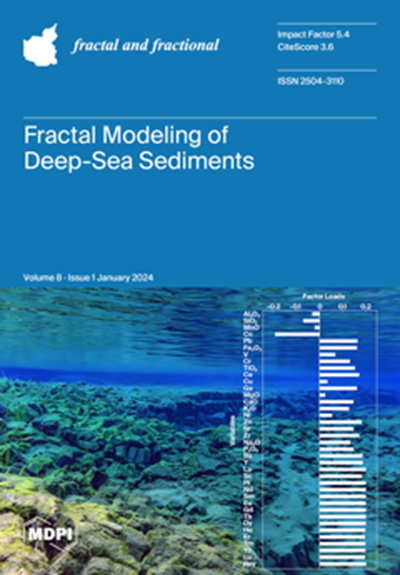非线性分数阶偏微分方程近似解的一种新的混合最优辅助函数方法
IF 3.6
2区 数学
Q1 MATHEMATICS, INTERDISCIPLINARY APPLICATIONS
引用次数: 1
摘要
本文利用Riemann-Liouville分数阶积分和Caputo导数,采用最优辅助函数法逼近分数阶非线性偏微分方程的解。这种方法消除了对参数大小的假设的需要,提供了一个显著的优势。我们使用时间分数Cahn-Hilliard,分数Burgers-Poisson和Benjamin-Bona-Mahony-Burger方程验证了我们的方法。对比测试表明,我们的方法优于新的迭代、同伦摄动、同伦分析和剩余幂级数方法。这些算例表明了该方法在求非线性分数阶微分方程精确解方面的有效性,显示了它在精度和一致性方面的优越性。我们强调了它的潜力,揭示难以捉摸的精确解决方案,通过展示各种成功的例子。我们的方法推进分数阶微分方程研究,并为从业者提供解决非线性方程的工具。一个关键的特点是它能够避免参数假设,增强了它对更广泛的问题的适用性,并扩大了使用分数阶微积分技术可解决的问题的范围。本文章由计算机程序翻译,如有差异,请以英文原文为准。
A New Hybrid Optimal Auxiliary Function Method for Approximate Solutions of Non-Linear Fractional Partial Differential Equations
This study uses the optimal auxiliary function method to approximate solutions for fractional-order non-linear partial differential equations, utilizing Riemann–Liouville’s fractional integral and the Caputo derivative. This approach eliminates the need for assumptions about parameter magnitudes, offering a significant advantage. We validate our approach using the time-fractional Cahn–Hilliard, fractional Burgers–Poisson, and Benjamin–Bona–Mahony–Burger equations. Comparative testing shows that our method outperforms new iterative, homotopy perturbation, homotopy analysis, and residual power series methods. These examples highlight our method’s effectiveness in obtaining precise solutions for non-linear fractional differential equations, showcasing its superiority in accuracy and consistency. We underscore its potential for revealing elusive exact solutions by demonstrating success across various examples. Our methodology advances fractional differential equation research and equips practitioners with a tool for solving non-linear equations. A key feature is its ability to avoid parameter assumptions, enhancing its applicability to a broader range of problems and expanding the scope of problems addressable using fractional calculus techniques.
求助全文
通过发布文献求助,成功后即可免费获取论文全文。
去求助
来源期刊

Fractal and Fractional
MATHEMATICS, INTERDISCIPLINARY APPLICATIONS-
CiteScore
4.60
自引率
18.50%
发文量
632
审稿时长
11 weeks
期刊介绍:
Fractal and Fractional is an international, scientific, peer-reviewed, open access journal that focuses on the study of fractals and fractional calculus, as well as their applications across various fields of science and engineering. It is published monthly online by MDPI and offers a cutting-edge platform for research papers, reviews, and short notes in this specialized area. The journal, identified by ISSN 2504-3110, encourages scientists to submit their experimental and theoretical findings in great detail, with no limits on the length of manuscripts to ensure reproducibility. A key objective is to facilitate the publication of detailed research, including experimental procedures and calculations. "Fractal and Fractional" also stands out for its unique offerings: it warmly welcomes manuscripts related to research proposals and innovative ideas, and allows for the deposition of electronic files containing detailed calculations and experimental protocols as supplementary material.
 求助内容:
求助内容: 应助结果提醒方式:
应助结果提醒方式:


